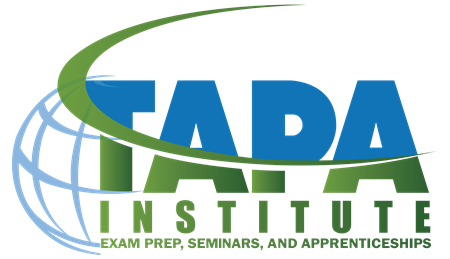Mastering Productivity When Preparing for High Stakes Professional Exams with CPA Time Management
The CPA exam is not just about accounting, but is also an essay on planning and purposeful CPA time management. Most applicants are exhausted by the massiveness of materials, confusion about what topics are utterly necessary, and the need to juggle work, family, and education. Therefore, successful aspirants do not look at each study session as a different marathon but as a component of a system as a whole. They have an everyday learning cadence that is strategic enough as not to burn out.
The first aspect of this system is the segmentation of extensive material into usable modules in accordance with a study plan. Instead of attempting to consume a vast amount of material at once, high-achieving applicants divide the material into manageable bits accompanied by targeted goals. This creates a sustainable pace and conserves cognitive power through months of training.
Cultivating Focus Through Visualization and Reinforcement
There is also the mental aspect of storing tons of minutiae. Memory pathways can be reinforced by visualization, which involves rehearsing the nature of exams, recalling formulas that are in context, and visualizing the tempo of answering the multiple-choice and task-based simulation questions. Numerous professionals describe these techniques as making the vague definitions easy to remember.
Spaced repetition and active recall are also useful in memory strengthening. Long-term retention is facilitated by revisiting wisely spaced apart, without any cramming on the night before. Mock questions, written revelations in your language, and attacking your trouble spots help you gain confidence slowly. This way alleviates the last-minute rush and breeds sanity.
Integrating Stress Resilience into The Study Journey
An effective study routine only works when it does not undermine well-being. Mental burnout and emotional exhaustion among candidates pursuing the CPA can be the often-observed cases. Surprisingly, purposefully built rest, recovery, and reflective breaks within a study plan boost endurance and cognitive performance to improve significant. Study breaks that involve mindfulness practice or deep breathing can help adjust concentration.
Indeed, the most effective long-term outcomes are achieved with expert coaching that establishes time-based planning combined with stress reduction. Exam takers develop a robust mindset when they reinterpret failure as a chance to perfect their strategy. When difficulties are presented, either in a tough subject or any surprise requirement, this strength holds them on track and does not allow them to become derailed.
Working Smart: Combining Productivity Tools and Professional Insight
Productivity tools such as digital calendars, task organizers, and timers are worthwhile down-the-road products, but they offer limited usefulness without the input of a specialist. Getting in touch with those who have passed the CPA process can also clear up what is high yield, how to recreate exam conditions, and how to modify pacing during a course. Organized tutoring and mentored coaching may be used to transform a general plan into an individual and flexible plan.
Such individual experiences not only allow accountability but also form emotional support. Applicants are less lonely, more targeted, and capable of adapting to priority changes and unforeseen time-outs. Good mentorship keeps the larger picture in perspective and makes every block of study serve.
Aligning Physical Self-Care with Mental Performance
Health is a prerequisite to every good study plan. It is non-negotiable to eat well, sleep, and exercise. The brain will learn and remember faster when the body is rested and fed well. People give athletes time in between training to get better results; that is how exam candidates should consider studying.
This synergy between health and academia implies scheduling meals, physical activity, sleep, and study objectives. It is not a luxury; it is a plan. When candidates skip this dimension, their study hours may come to diminishing returns in terms of stress or exhaustion. Incorporating healthy life habits into a time plan makes every hour more useful.
Review Phase: Coaching-Driven Final Refinement
Closer to exam day, there is not so much new learning that will be done as a priority, but a lot of learning about what you have already been taught. Rigorous study sessions involving a recap of high-yield study, a review of major concepts, and practice in exam format take center stage. It is a period of finesse, smoothing out mentally and perfecting test-taking manners instead of volume.
The CPA time management coaching by Dr. Sabine Charles' contribution at this point would be very useful. An experienced professional will be able to advise where to put the final attention, prevent excessive preparation, and relieve stress. Visualization, affirmations, and breathing techniques are stress coaching strategies that keep people calm. The idea is to feel ready and refreshed on a test day, not crammed.
Building A Cohesive Preparation Ecosystem
High-achieving candidates consider study habits, memory techniques, and stress relief as one connected ecosystem rather than distinct areas. Learning condensed into concise, catchy formations through the use of study scripts enables quick assimilation. When used along with mindfulness and memory aids, they make great tools for learning. Coaching, health practices, and scheduling are the final pieces.
The difference between a well-planned and a piecemeal plan is organization: all parts strengthen the rest. Study schedules become study habits, memory aids become habits, and rest becomes energy, not a distraction. Such an ecosystem lowers the friction, is mentally resource-saving, and keeps candidates above the lower end.
Why Expert-Led Support Elevates Preparation Quality
Aspiring CPAs have a lot to gain when they are paired up with other seasoned professionals. They are provided with hand-picked information about the exam pattern, difficult subject areas, and candidate errors. Coaches provide tried and true practices to conquer simulations, sonar through long segments, and switching between multiple-choice and written tasks. They contribute towards forming emotional grit to react well to hindrances.
This kind of support enables candidates to manage their time effectively, not only in a period of studies but also during examinations. They do not fall into the pitfalls of procrastination, burnout, or over-review inefficiency. The relationship between the coach and the athlete guarantees an hour-by-hour progress measure.
Sustaining Motivation Through Small Wins and Reflection
A long-term study not only requires discipline; it requires purpose. A candidate who associates study sessions with career objectives, his/her own ambitions, and emotional strength remains encouraged. Individual learning may be lonely. A supportive cohort, or accountability partner, motivates the troops to stick it out and exchange tips and support. Individual achievements count: reward yourself after a large mock, a difficult concept, or a week of regular studies. This is done by these small rewards to maintain morale and remind them that they are doing well.
Adapting As You Advance
You will change speed and requirements as the study advances. At the beginning of prep stages, you could require more time to obtain fundamentals; later, shorter, more intense review windows can be used. Let your plan change—lengthen or abridge study time when either is needed, reallocate attention when performance analytics reveal weak areas, or readjust due to a more challenging patch. Resilience is flexibility.
Preparing for The Exam Day Itself
There must be a micro-schedule on test day. Plan the order and schedule of every part, add breaks, and rehearse transitions in your mind. When you are doing your mock exams in the same structure and same timing as the real exam, you will be internalizing habits that lower anxiety. That mental rehearsal and pacing practice equals more surprises when the clock is running.
The Two-Pronged Advantage of Coaching and Strategy
Adding the benefit of expert advice, where a successful mentor will assist in framing and tracking your roadmap, to a significant personal strategy allows your benefits to multiply. This dual strategy of merging technical training scripts with emotional support and strategic feedback is the point stressed by one well-established mentoring organization. This assists candidates in shifting uncertainty to mastery of knowledge as well as confidence.
Investing in The Right Support System for Lifelong Success
Real mastery of the exam content is not just what you learn; it is also the way you are assisted through the process. Mentorship, organization, and wisdom of experience institutions are defined in the process. The TAPA Institute has become a dynamic place where structure and individualization merge. Candidates enjoy the use of vetted materials, mastered strategies, and the responsibility to remain consistent in their practice.
As a working professional or first-time examinee, the opportunity to utilize such a support system can mean more than success; it can be empowering. The candidates are not left to themselves to combat complexities. Instead, they are invited into an organizational culture of learning based on an ideology of excellence achieved through discipline and coaching.
Transforming Potential into Performance with The Right Guidance
When preparation is based on professional coaching, psychological resilience, and strategic timing, it proves to be the stepping stone into future leadership. The core TAPA Institute, which is led by Dr. Sabine Charles, has assisted many professionals in transforming their exam preparedness into life preparedness. Their model not only equips you to pass an exam; it equips you to face the demands and situations that come next.
Mastering time, structure, and mindset, you are not an aspirant taking a test but rather training your mind in precision and poise needed to perform in the adult world. This is the power of training made responsibly, thoughtfully, and with meaning.

